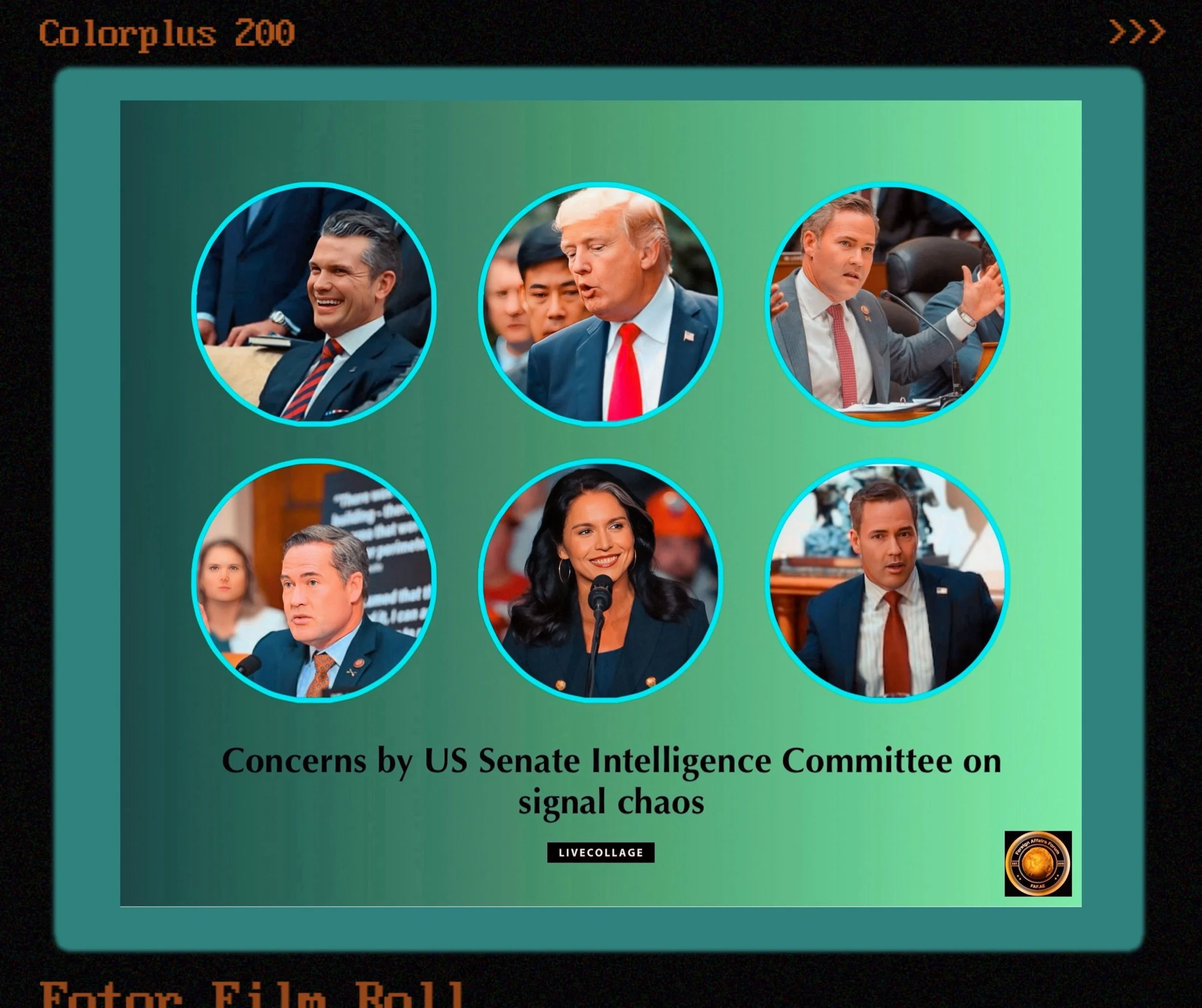Trump’s Revenge: The Vindman Brothers and the Weaponization of Federal Power
Introduction
The first two months of Donald Trump’s second term have systematically implemented what many critics characterize as a retribution campaign against perceived enemies, with the Vindman brothers emerging as early high-profile targets.
This comprehensive analysis reveals how the current administration has not only targeted specific individuals who previously testified against Trump during his first impeachment but has also established institutional mechanisms designed to transform federal agencies into instruments of political power.
Evidence suggests that through strategic appointments, executive orders, and targeted investigations, the administration has rapidly created a framework for exercising control over critical government functions while simultaneously pursuing vendettas against those deemed disloyal to the president.
These developments raise profound questions about the future independence of government institutions and the potential long-term consequences for democratic governance in the United States.
The Vindman Brothers: From Impeachment Witnesses to Retribution Targets
Alexander Vindman emerged as a central figure in American politics when he testified during Trump’s first impeachment proceedings about the president’s July 2019 phone call with Ukrainian President Volodymyr Zelensky.
As a Ukraine expert on the National Security Council, Vindman became a key witness when he expressed concern about Trump’s request for Ukraine to investigate Joe Biden ahead of the 2020 election.
In February 2020, shortly after Trump’s acquittal in his first impeachment trial, the president removed Vindman from his White House position, characterizing him as “very insubordinate” in a series of tweets that attacked Vindman’s reputation.
The dismissal represented an early example of Trump’s willingness to retaliate against those who challenged his actions, a pattern that has intensified in his second term.
The retribution extended beyond Alexander to include his twin brother, Yevgeny Vindman, who was also fired from his position at the National Security Council despite not having testified in the impeachment proceedings.
A subsequent Pentagon Inspector General investigation concluded that Trump administration officials had indeed targeted Yevgeny Vindman for reprisal after he raised concerns about the legality of Trump’s call with Zelensky.
According to the inspector general’s findings, after flagging these concerns to his superiors in July and August 2019, Yevgeny Vindman experienced a systematic reduction in his job responsibilities, was prevented from attending senior-level meetings related to his position, and received unfavorable performance evaluations before ultimately being dismissed.
This documented case of retaliation foreshadowed the more expansive approach to political revenge that has characterized the early days of Trump’s second administration.
The Vindman brothers’ story has taken a new turn in the current administration. Trump’s handpicked interim U.S. attorney in Washington D.C., Ed Martin, reportedly launched what critics describe as a “blatant campaign of intimidation” against both brothers.
According to reports, Martin has demanded financial records related to the Vindmans’ work supporting Ukraine, actions that many interpret as politically motivated retribution rather than legitimate law enforcement activity.
This targeting comes as Alexander Vindman transitions to a new role as a Democratic representative from Virginia, making him both a political opponent and a symbol of resistance to Trump’s first-term actions.
Ed Martin: Weaponizing the Justice Department
The appointment of Ed Martin as the interim U.S. Attorney for the District of Columbia represents a critical element in what critics describe as the administration’s broader retribution strategy.
Martin, a conservative activist and radio host with a history of defending January 6 Capitol rioters, has quickly established himself as a key figure in implementing what many view as Trump’s revenge agenda.
Since taking office shortly after Trump’s inauguration, Martin has overseen the dismissal of hundreds of criminal cases against January 6 participants while demoting multiple senior prosecutors involved in those cases during the previous administration.
These actions align with Trump’s campaign promises to pardon those involved in the Capitol riot and to investigate those who prosecuted them.
Martin’s activities extend beyond the January 6 cases to include what Democratic senators have characterized as attempts to intimidate government employees and chill the speech of private citizens.
In a professional misconduct complaint filed with the D.C. Bar by Senate Judiciary Democrats, the senators cite multiple abuses of power, including Martin’s failure to recuse himself from cases involving his former clients who participated in the January 6 riot.
The complaint references a February 3 communication where Martin allegedly threatened that his office would “pursue any legal action against anyone who impedes your work or threatens your people” regarding Elon Musk’s Department of Government Efficiency operations. These actions have prompted serious concerns about the politicization of federal prosecutorial power.
Internal communications reviewed by media outlets suggest that Martin views his role in explicitly political terms. In emails to his staff, Martin has reportedly pledged to “protect DOGE” and described his team of prosecutors as “President Trump’s lawyers.”
Despite what critics see as apparent conflicts of interest and inappropriate political loyalty, Trump has nominated Martin as the permanent U.S. Attorney for D.C., a position requiring Senate confirmation.
His nomination signals the administration’s commitment to placing loyalists in key positions throughout the federal government, particularly in roles with significant investigative and prosecutorial authority that could be leveraged against political opponents.
Broader Patterns of Retribution and Institutional Transformation
The targeting of the Vindman brothers and Martin’s actions at the U.S. Attorney’s Office reflect a broader pattern of retribution that extends across multiple federal agencies and targets various individuals and institutions perceived as hostile to Trump.
One of Trump’s first official actions was signing executive orders to “End the Weaponization of the Federal Government” and “Restore Freedom of Speech and End Federal Censorship.”
Despite their titles suggesting protection against government overreach, critics argue these orders establish the groundwork for turning government institutions against Trump’s political enemies by directing the attorney general and the director of national intelligence to “take appropriate action to review the activities” of various departments and agencies.
These executive orders appear part of a comprehensive strategy to reshape the federal government to enhance presidential control and diminish institutional independence.
In February 2025, Trump issued another executive order titled “Ensuring Lawful Governance and Implementing the President’s ‘Department of Government Efficiency’ Deregulatory Initiative,” requiring agencies to identify and rescind regulations inconsistent with the administration’s policies and to constrain their enforcement authorities.
This directive works with other executive orders that aim to stymie new regulatory actions and prevent the enforcement of existing regulations viewed as contrary to the administration’s agenda.
The administration has also moved to politicize key positions that career civil servants have traditionally filled throughout the federal bureaucracy. In March 2025, the Office of Personnel Management instructed agencies to reclassify chief human capital officer positions to allow political appointees to fill those roles, a move that critics argue is designed to facilitate the hiring of loyalists while circumventing civil service protections.
This directive followed similar actions regarding chief information officers across government agencies. It came shortly after the Trump administration placed the IRS human capital officer on leave for alleged “ineffective management” and “insubordination” toward DOGE operatives. These personnel actions suggest a coordinated effort to remove potential obstacles to the administration’s agenda.
Targeting Legal and Educational Institutions
The retribution campaign has expanded beyond government agencies to include law firms and educational institutions perceived as hostile to Trump or his allies. In March 2025, Trump confirmed in an interview with Fox News that his administration was “going after” law firms he claimed were “dishonest” and “bad for the country.”
This declaration followed executive actions barring lawyers from certain firms from federal buildings and prohibiting federal agencies and contractors from collaborating with them. These measures appear designed to isolate and financially damage firms that represented clients opposed to Trump or worked with prosecutors investigating him during his time out of office.
Ed Martin has extended this approach to educational institutions, sending a letter to the dean of Georgetown University Law Center threatening not to hire the law school’s graduates as long as professors there “promote and teach DEI.”
This attempt to leverage federal employment opportunities to influence academic curricula demonstrates how the administration will use its authority to pressure institutions outside the government. When the dean responded that Martin’s letter constituted a “constitutional violation” that attacked the “University’s mission as a Jesuit and Catholic institution,” Martin remained undeterred, continuing to use his position to advance what critics describe as an ideological agenda.
The administration has also sought to deter legal challenges to its policies by issuing an executive order requiring plaintiffs seeking injunctions against the administration to pay the government’s legal expenses upfront if a judge rules in their favor.
This unprecedented requirement would create significant financial barriers for civil rights organizations, pregnant immigrants, transgender youth, and humanitarian workers seeking to challenge potentially unconstitutional government actions. The American Bar Association has warned against these “growing governmental attempts to interfere with impartial courts, the right to legal representation, due process, and freedoms of speech and assembly in our nation.”
Embedding Loyalists and Creating Parallel Power Structures
A particularly concerning aspect of the administration’s approach involves what appears to be a systematic effort to embed loyal political appointees throughout the federal bureaucracy. House Oversight and Government Reform Chairman James Comer has launched an investigation into hiring-related personnel actions taken by the outgoing Biden-Harris administration, expressing concern about “reported efforts to improperly embed Biden-Harris Administration political appointees into career civil service positions.”
However, critics argue this investigation serves as a pretext for removing career civil servants and replacing them with Trump loyalists, effectively “Trump-proofing” agencies in reverse.
The creation of the Department of Government Efficiency (DOGE), led by Elon Musk, represents another mechanism for exercising control over the federal bureaucracy outside traditional oversight structures. Reports indicate tension between some of Trump’s agency heads and Musk over his demands that all federal employees state their weekly accomplishments or risk termination.
This conflict illustrates the potential for confusion and dysfunction as parallel power structures emerge within the federal government. Career civil servants and even some Trump appointees are caught between competing authorities and mandates.
Ed Martin’s U.S. Attorney’s Office appears to implement a similar strategy of embedding loyalists while marginalizing career professionals. Despite claiming to be “impressed” by his “awesome team,”
Martin has reportedly demoted seven top prosecutors in his office to low-level jobs, some of whom had been involved with the January 6 insurrection cases. Simultaneously, he announced plans to hire 20 new assistant U.S. attorneys, presumably individuals more aligned with his and Trump’s vision for the office. This combination of demotions and new hiring creates opportunities to reshape the institution’s culture and priorities to serve political rather than public interest objectives.
Conclusion
The Emerging Pattern of Institutional Capture
The Vindman brothers' targeting represents just one element of what appears to be a comprehensive strategy to consolidate presidential power by reshaping federal institutions, punishing perceived enemies, and deterring opposition.
Through strategic appointments, executive orders, and targeted investigations, the Trump administration has quickly established mechanisms that critics argue transform government agencies into instruments of political power rather than servants of the public interest. The speed and scope of these changes suggest a well-planned approach to institutional capture that extends far beyond traditional policy differences between administrations.
Democratic senators and other government watchdogs have attempted to respond through formal complaints, investigations, and public criticism. The misconduct complaint filed against Ed Martin by Senate Judiciary Democrats represents one such effort to maintain accountability and ethical standards in government.
However, the effectiveness of these oversight mechanisms remains uncertain, given an administration that appears committed to fundamentally altering the relationship between the presidency and other government institutions.
As the administration moves forward with its agenda, targeting individuals like the Vindman brothers serves practical and symbolic purposes. It removes potential sources of resistance within the government while deterring others from speaking out against perceived abuses.
Symbolically, it demonstrates the administration’s willingness to use government power against those who challenge presidential authority, sending a message that extends far beyond the specific individuals targeted.
The combination creates a powerful mechanism for consolidating control while weakening traditional checks on executive power, raising profound questions about the future of democratic governance in the United States.






